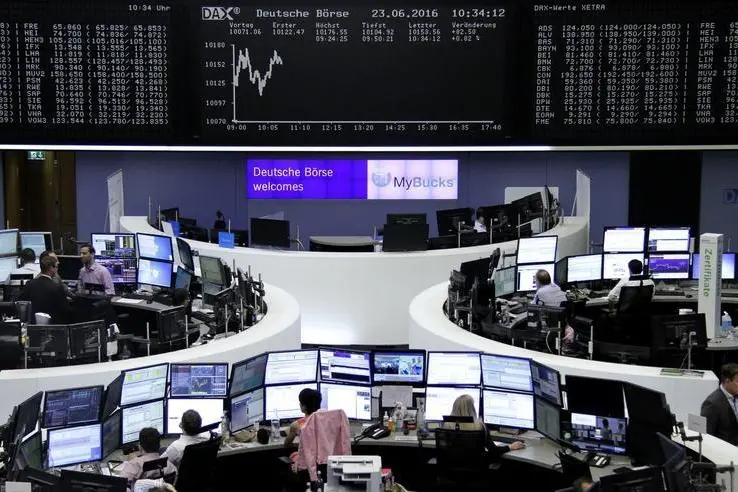PHOTO
By Dasha Afanasieva
LONDON, April 16 (Reuters Breakingviews) - Bankers huntingEurope equity raisings have had a fallow start to the year. Theyshould get used to it.
On the face of it, the bad vibes are strange. Europeanequities have recovered since a 15 percent selloff late lastyear and are now back where they were trading in October. Butproceeds from initial public offerings in Europe this year aredown 82 percent to $2.6 billion as of April 10, compared with$14 billion for the same period in 2018, according to Refinitivdata, and now stand at a decade low. Broader equity capitalmarkets revenue is down 37 percent.
As might be expected, bankers are putting on a brave face.They report an uptick in activity in the past few weeks up toearly April both in terms of deals and pitching for newbusiness. Two recent promising listings of Nexi
That doesnt quite wash. The second quarter is typically thebusiest for offerings anyway, and now is also the time bankersstart preparing for another active IPO period in the autumn.Payments companies are in a league of their own, outperformingmost sectors, and are thus easier to float. Volkswagen
There are two more structural issues. Willing IPO investorscomplain of having relatively less cash to allocate to listingsdue to a long-term shift to passive investing strategies: assetsunder management in active managed funds fell in 2018 to 8.4billion euros from 9.1 billion euros in 2017, according toRefinitiv Lipper data. Then theres the completely opaque macrooutlook. The International Monetary Fund says a disorderlyBrexit threatens its already downgraded forecast for globalgrowth, and an ageing economic cycle has made investors andcompanies more sensitive to data showing macroeconomic weakness.
Germany has suffered from weaker demand for its exports,softer consumer spending and new emissions standards that havedepressed car sales. For 2019 at least, these factors seem morerelevant than a few cheery payments IPOs.
CONTEXT NEWS
- Money raised from European IPOs this year, up to April 10,had fallen 82 percent to $2.6 billion compared with the sameperiod in 2018, according to Refinitiv data.
- Sharp declines were seen in equity capital market proceedsacross Asia, the Americas and Europe.
- A pan-European index of shares, the STOXX Europe 600, hasrisen 17 percent from two-year lows late last year.
- As of 0930 GMT on April 16, Nexi was trading 6.5 percentbelow its IPO price of 9 euros a share. Network Internationalwas 15.2 percent higher than its IPO price of 435 pence.
On Twitter
For previous columns by the author, Reuters customers canclick on
SIGN UP FOR BREAKINGVIEWS EMAIL ALERTS
<^^^^^^^^^^^^^^^^^^^^^^^^^^^^^^^^^^^^^^^^^^^^^^^^^^^^^^^^^^^Europe's share listings plumb 10-year low as companies seekalternatives
^^^^^^^^^^^^^^^^^^^^^^^^^^^^^^^^^^^^^^^^^^^^^^^^^^^^^^^^^^^> (Editing by George Hay and Bob Cervi. Graphic by VincentFlasseur.) ((dasha.afanasieva@thomsonreuters.com; Reuters Messaging:dasha.afanasieva.thomsonreuters.com@reuters.net))





















